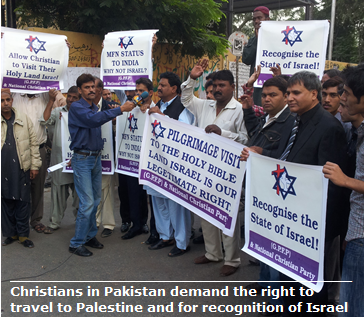 Published: 20 December 2011
Published: 20 December 2011
Region: Pakistan & Worldwide
Aidan White in Karachi and Islamabad Finds Media ready to Clean Up their Act

If there is one place where people have good reason not to believe everything they read in the papers it’s Pakistan. According to the western media narrative, this country is on the edge of the abyss – consumed by political violence, Islamist extremism and endemic corruption. Democracy, if it exists at all, is at best enjoyed in twilight conditions. It is, according to many, a basket case.
However, look beyond the headlines and there are many signs of democracy at work. Outside Karachi Press Club on December 10th, International Human Rights Day, protesters are on the streets: an end to state-sponsored terror in Balochistan, says one group; nearby another crowd calls on the government to recognise the state of Israel and to allow Christians the right to visit the Holy Land; between them chanting steelworkers demand union rights for all.
Debates rage within media over the country’s political future, the need to eliminate corruption, a meaningful strategy for peace, and how to repair difficult relationships with the west, and the United States in particular.
There is a reform movement also active within journalism. Media support groups, many of them funded by western donors, are vigorously working to improve levels of professionalism, gender equality and, in particular, safety for reporters and editors.
They have much to do. Last year ten journalists were murdered and the International Federation of Journalists marked out Pakistan as one of the world’s most dangerous places. During 2011 six more deaths, including at least three targeted assassinations have added to the sense of crisis.
But these losses have also provoked an unprecedented degree of solidarity within the country’s disunited media. The abduction and murder of Asia Times Online journalist Saleem Shazad in May, for instance, led for the first time to a joint protest by media companies.
The same media owners, including some from the rapidly-expanding and notoriously unethical broadcast sector, are working together to confront arbitrary government action against independent journalism.
They are discussing a pact to organise country-wide media solidarity in the event of attempts to shut down individual media. There is also a unified call for more transparency in relations with the state and an end to government pressure, which it applies by providing lucrative public advertising only to its friends in the media.
attempts to shut down individual media. There is also a unified call for more transparency in relations with the state and an end to government pressure, which it applies by providing lucrative public advertising only to its friends in the media.
The country’s leading network GEO TV is also developing internal rules of governance and ethical journalism that aims to put tolerance on the media agenda. In many of the numerous seminars organised by international media support groups the issue of ethical conduct and non-discrimination now dominates the discussion.
There is a growing realisation across the media landscape that increasing intolerance within government and among extremists can only be confronted by more unity and more professionalism, from the top to the bottom of the media pyramid.
Media development groups are also getting the message. On December 14th a rare information-sharing meeting of media development groups in Islamabad met to discuss strategies to promote responsibility in media.
One of the participants, the distinguished campaigner for women’s rights and citizen’s voice in media Tasneem Ahmar, says the initiative is long overdue, not only to support media reform but also to encourage higher standards among media support groups. “We need to move ahead with efforts for not only responsible media but an equally responsible and transparent development sector,” she says.